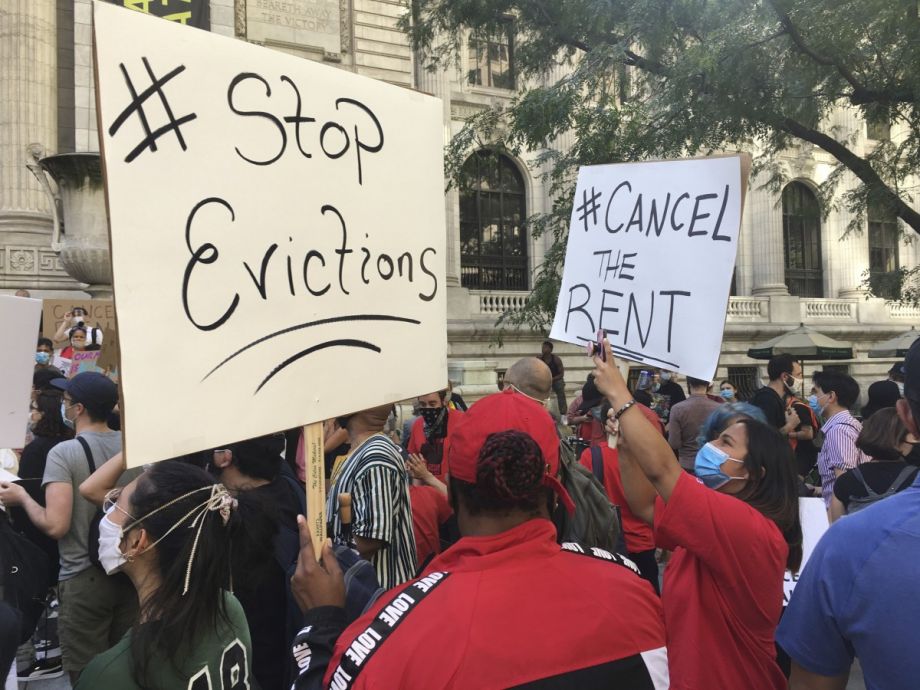

(STAR MAX File Photo/AP)
Judge Says CDC Eviction Moratorium Overstepped Authority
A U.S. District Judge in Cleveland ruled this week that the Centers for Disease Control exceeded its authority when it issued a nationwide moratorium on evictions during the pandemic, according to a report in Cleveland.com. The judge, J. Philip Calabrese, said that the CDC did not have authority to issue the order under the Public Health Service Act, according to the report. The judge did not issue an injunction that would have stopped enforcement of the ban, but his ruling drew praise from a group of landlords who had sued to overturn the moratorium, the report says.
“Overreaching administrative agencies — whether state or federal – may not attack Ohioans’ property rights without specific, narrow and unmistakable authority from elected legislative branches,” Maurice Thompson, an attorney representing the landlords, said, according to the report.
The suit was originally filed in September by the National Association of Homebuilders and a group of northern Ohio property owners, according to the report. Last month, a federal judge in Texas also ordered that the moratorium was unconstitutional, a decision that the U.S. Department of Justice is appealing. The moratorium is currently set to expire at the end of the month.
Washington State Lawmakers Advance New Eviction Protections
Bracing for the expiration of the federal eviction moratorium, lawmakers in Washington state have advanced a series of measures aimed at protecting tenants, according to a report in The Seattle Times. The efforts are meant to “craft an ‘offramp’” from the nationwide moratorium after it expires, the report says. The bills under consideration include rules requiring landlords to offer payment plans to tenants who are behind on rent, and to create a right to counsel for tenants facing evictions, a policy that has helped tenants remain in their homes in other states. Another bill, recently approved in the state House of Representatives, would require landlords “to provide a valid reason for ending certain leases with tenants,” part of a broad movement for “just cause” protections for tenants, according to a separate report in The Seattle Times.
“We can’t go back to a system where renters can easily be forced into homelessness for no fault of their own,” said State Rep. Nicole Macri, who sponsored the just cause bill, according to the report.
The proposed rules are opposed by some Republican lawmakers and property owners, according to the reports. Republican State Sen. Phil Fortunato said that landlords who have not received past-due rent from tenants could be ruined by the proposed rules.
“These people are hanging on by their fingernails,” Fortunato said, according to the report.
Virtual Protest Hits Eviction Court in Contra Costa County
A group of tenant advocates disrupted a virtual court hearing on evictions in Contra Costa County, California, according to a report in NBC Bay Area. Around 70 protestors tried to join the Zoom hearing using account names like #StopEvictionsSaveLives, #CloseTheCourt and #AltoALosDesalojos (Stop Evictions), according to the story. The advocates say evictions are happening at a faster rate in Contra Costa than other Bay Area counties, according to the report. Katie Martin Selcraig, an organizer with Monument Impact, a group that helped organize the protest, said there were 135 evictions in Contra Costa County between March and December of last year. Several reports over the last year have described tenants being removed from their homes despite the protections of the CDC eviction moratorium. For one thing, the moratorium is not absolute, and requires tenants to be aware of it for it to work. And some landlords have proceeded with illegal evictions besides.
Tenant protests have disrupted eviction courts from Philadelphia to Kansas City. Though only a few protestors were able to access the virtual hearing in Contra Costa County, Selcraig said the action was a success, according to the report.
“I think it’s a win for us that we were able to cause some level of chaos, make their jobs a little bit harder and not make it business as usual,” she said, according to the story.
Fudge Confirmed as HUD Secretary
Also this week, Rep. Marcia Fudge, who represents an area around Cleveland in Congress, was confirmed as the next secretary of the Department of Housing and Urban Development, The New York Times reported.
“Secretary Fudge is well equipped to meet this moment,” Diane Yentel, president and CEO of the National Low Income Housing Coalition, said in a statement. “During the course of her more than 30 years in public service, she has been a champion for the lowest-income people, working to protect and expand access to food and nutrition assistance, healthcare, and the vital safety net programs that keep millions of the lowest-income and most marginalized people from falling into poverty.”
This article is part of Backyard, a newsletter exploring scalable solutions to make housing fairer, more affordable and more environmentally sustainable. Subscribe to our twice-weekly Backyard newsletter.
This post was originally published on Next City.